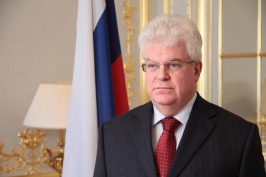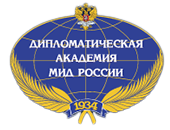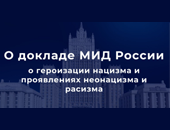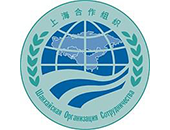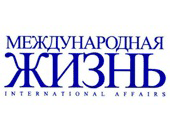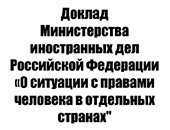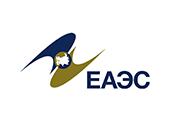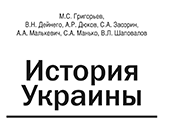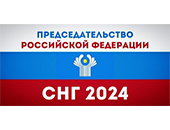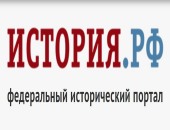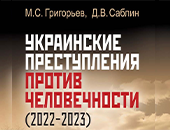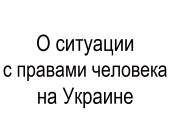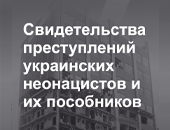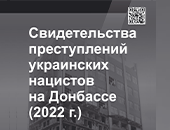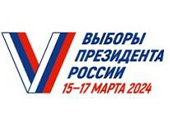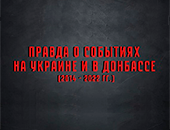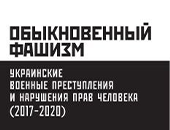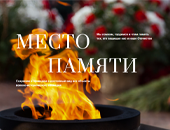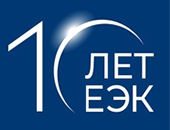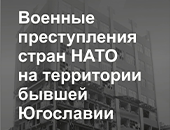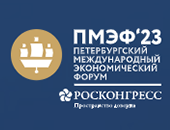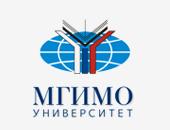Permanent Representative of Russia to the EU Ambassador Vladimir Chizhov's interview with Euractiv, 6 March 2018
Euractiv: The US is accusing Russia of killing civilians in Syria, and this happens after a UN Security Council Resolution for a humanitarian truce in Eastern Ghouta was agreed. What do you reply?
Ambassador Vladimir Chizhov: To begin, let me remind you how this latest UN Security Council Resolution 2401 came about. Russia supported it, it was adopted unanimously. The draft was initiated by Sweden and Kuwait. The Russian delegation introduced certain amendments which were taken on board. And one, I would say the most important one, was a provision that the ceasefire would not extend to well-known terrorist groups that had been designated as such by the Security Council itself, like ISIL, or Daesh, and Al-Nusra under its various names. But supporting the Resolution, Russia stressed that for it to be fully implemented, the warring factions should abide by it. Which unfortunately has not been the case. A few days after the Resolution was adopted, the Russian centre for reconciliation of opposing sides offered a 5-hour total ceasefire every morning to allow civilians to leave the area.
Euractiv: But who says the resolution has not been abided by? Russia?
Vladimir Chizhov: Observers on the ground have seen and reported that the militants inside Eastern Ghouta continued shelling civilian housing areas and blaming the government, preventing civilians from leaving the area. They also continued mortar shelling of central Damascus from Eastern Ghouta.
Euractiv: But I have read reports which obviously are conflicting with this description. These reports are about Russian aircraft conducting bombing missions over the besieged Eastern Ghouta region in defiance of the UN ceasefire…
Vladimir Chizhov: Well, that means you haven’t been reading all the sources. If you try to have a full picture, you will see, even after the Resolution was adopted and ceasefire proclaimed, central districts of Damascus continued to be shelled by mortar fire from Eastern Ghouta. And what is equally important is that a humanitarian corridor was created, supported by the Syrian government, by the Russian military, even leaflets were scattered across Eastern Ghouta saying this is the route you can safely follow. But along that humanitarian route, during all those days, only two small children managed to escape. They don’t even know if their parents are dead or alive, because they ran ahead of their parents, leaving them behind. So basically the escape route from Eastern Ghouta remained unused, militants were continuing to prevent civilians from leaving, because they need them as human shields.
Euractiv: But the US accuses the Russian fighter jets of killing innocent civilians…
Vladimir Chizhov: Of course the Syrian military had to strike back against terrorist groups that are inside Eastern Ghouta. As far as I am aware, Russian planes were monitoring the situation, doing aerial reconnaissance, they were not engaged in any bombing raids.
You know today I have a feeling of déjà vu. You remember the hysteria around Eastern Aleppo? The words used are the same. Who is mentioning Aleppo today?
Euractiv: The Russians.
Vladimir Chizhov: Yes, we are proud of having contributed to saving hundreds of thousands of civilians there. Today 200,000 civilians have returned to Eastern Aleppo and life is picking up. Reconstruction is ongoing, there is running water, there is electricity. But let’s look at a third city in Syria, Raqqa. This is a ghost town with corpses rotting in the streets. And not a word in Western media. Raqqa has been demolished to the ground by the US-led coalition. Aid workers and humanitarian aid are being prevented from entering the city. And no civilian or humanitarian corridor was ever allowed there.
Euractiv: Basically you say: double standards, bias against Russia.
Vladimir Chizhov: Of course, bias against Russia, bias against one side of the conflict in Syria, the Syrian government.
Euractiv: But why do we see footage on TV depicting suffering of the civilian population as a result of Russia-backed Syrian government military actions?
Vladimir Chizhov: Regarding the footage, Euronews has been broadcasting these last few days video produced by the infamous White Helmets. They are no longer wearing helmets, but still have the insignia on their backs. And not a single one had his face shown on TV. They are only filmed from the back. It is well-known that there has been evidence in various places including Aleppo, that they were staging video shows with red paint. This is a deliberate attempt to spread fake information. And who finances them? US and Great Britain, who invented them.
Regarding claims about chemical weapons use, Western media say Russia is responsible for the Syrian government having kept part of its chemical weapons arsenal. This is not only unfair, but also totally wrong. To begin with, chlorine is not a chemical weapon, it’s a chemical openly sold and widely used to disinfect water and for other civilian purposes. Of course, it can be used as a weapon, and if you ask me if it is used in Syria, I will say yes. But who is using it? Let’s try to bring in some logic. What would be the incentive for the Syrian government, whose troops are advancing, to use chlorine in the areas they are about to take? On the other hand, the terrorists having got hold of a number of barrels of chlorine, would certainly use it, to blame the army. Unfortunately those Western media who spread the story don’t make the effort of looking into the real picture.
Euractiv: Maybe they don’t have the means to go on site.
Vladimir Chizhov: Again, it’s not only having the means to go, it’s about analysing the situation from the point of view of logic.
Euractiv: Let’s move to another topic. Is there a danger that with the current conflict between Gazprom and Naftogaz in Ukraine, clients in Eastern Europe will remain without supplies?
Vladimir Chizhov: Do you care about Eastern Europe only?
Euractiv: It’s because they are more vulnerable, Western Europe has much more diversified supplies.
Vladimir Chizhov: You know, first of all, I’m not in a position to speak on behalf of Gazprom. Gazprom is an international company.
Euractiv: It’s a state-owned Russian company.
Vladimir Chizhov: It’s a joint stock company with state participation. Around 30% of its stock is owned by foreign investors. But I can quote what both Gazprom and the Minister of energy of the Russian Federation have to say on this situation. Indeed, Gazprom has lodged an appeal with the Stockholm arbitration court against the decision taken. That appeal will be considered by a new arbitration panel of the Stockholm court, not by the same people. And it will take at least six months. In the meantime all existing contracts are in force and there is no danger of the transit through Ukraine stopping. This is an issue that was discussed over the weekend between Vice-President of the Commission Maroš Šefčovič and Minister Novak, and the Russian Minister confirmed that Russian transit to the EU is not in danger, and all the sides remain in contact on this issue.
Euractiv: There is no danger unless the Ukrainians start syphoning gas?
Vladimir Chizhov: Yes. But Poroshenko said that they have no problem, because they have increased the reverse flows.
Having said that, I can confirm that on 2 March Gazprom declared it is starting a procedure of terminating contracts with Naftogaz of Ukraine, both for supplies and for transit. But this is a slow process, it never takes less than a few months, according to some estimates, it could take a year or more.
Euractiv: What are the Russian objections to the Stockholm court decision?
Vladimir Chizhov: The Russian government hasn’t made any statements on this. This is an issue for Gazprom. And as Gazprom said, there were two arbitration decisions, one was regarding the contract on gas supplies to Ukraine, which was delivered in December last year, and the second one concerns the contract on transit. In the first case the Stockholm arbitration court declared that the provision to supply gas to Ukraine which according to the contract was of 52 bcm a year was not logical and the normal benchmark should be 5 bcm a year, ten times lower. And this was explained on the grounds of the difficult economic situation in Ukraine. Whereas the arguments of Gazprom that the demand in the EU went down, were not taken on board by the Stockholm court of arbitration as a valid argument. Meaning that the Ukrainian economic situation was a valid argument, and the decreased consumption in the EU was not. This is a clear case of double standards. The CEO of Gazprom Alexey Miller said: OK, Ukraine may have a difficult economic situation, but why should we be paying for this?(!)
Euractiv: You mean this is not a valid argument, because it’s not in the contract.
Vladimir Chizhov: Actually the take-or-pay clause in the supply contract was very strict and provided penalties should Ukraine not honour that principle. In the transit contract, ship-or-pay did not involve any penalties, it was a more flexible provision.
Euractiv: Let’s move to the conflict in Eastern Ukraine. It looks like there hasn’t been any meeting in the so-called Normandy format for quite some time…
Vladimir Chizhov: There was a meeting of the Contact group in Minsk, they are meeting quite regularly. Regarding the Normandy format, there was a missed opportunity for a ministerial meeting in the margins of the Munich Security Conference, because the German foreign minister couldn’t make it. The situation there continues to be a cause of serious concern to us. And not only to us. There were discussions last week at the OSCE Permanent Council, and not only the Russian delegation, but representatives of EU Member States and Switzerland were harshly critical of recent events in Ukraine, including the ransacking of buildings such as the Russian cultural centre in Kiev, of the Hungarian cultural centre in Western Ukraine. Rampage by nationalists, by extremists is becoming part of daily life, unfortunately. There was a big picket in front of the Ukrainian parliament, which was raided by police over the weekend, there were tents put up there, so it was a long-term manifestation, but the police came and threw them out, with apparently disproportionate use of force, as seen from TV screens.
Euractiv: A pro-Russian manifestation?
Vladimir Chizhov: No, it was anti-Poroshenko. Anti-Poroshenko doesn’t necessarily mean pro-Russian. But as far as Donbass is concerned, the latest law on “re-integration” of Donbass runs counter to the Minsk agreements, which are not even mentioned, and counter to all obligations that Kiev has undertaken on the basis of those agreements. In fact it opens the way to a military solution of the problem.
Euractiv: I know this is the Russian position. Do you find any support in EU circles?
Vladimir Chizhov: Actually we feel that there is growing frustration in EU circles with what is happening in Ukraine. I’m not even mentioning other issues such as lack of reform, corruption, which prompt the EU to be increasingly critical of the policies of the current Ukrainian government. But as far as Donbass is concerned, of course, the EU places its hopes in the Normandy format. Sometimes I have the impression that the other member states have delegated authority to Germany and France…
Euractiv: Maybe it’s better this way, at least you don’t have Poland around the table…
Vladimir Chizhov: Well, Poland was at the table in February 2014, agreeing a deal with Yanukovich. And that deal was thrown out the next day by the EU.
In the meantime the OSCE monitoring mission is recording military build-up by the Ukrainian armed forces. Actually one of the elements of this new law renames the whole operation from an anti-terrorist operation to a military one, shifting responsibility from the ministry of interior to the ministry of defence, to the general staff, which is a clear indication for anyone who is an unbiased observer that this is preparation for war.
Euractiv: What chance has Ukraine against Russia?
Vladimir Chizhov: Donbass is part of Ukraine. Yes, there are two self-proclaimed entities that have decided not to succumb to the results of the coup d’état in Kiev in 2014. But the Minsk agreement envisages direct dialogue between the Ukrainian government and the leadership of those two republics. Yes, they sit in the contact group in Minsk and discuss certain issues, like exchange of prisoners, or security of water supply, like opening up certain checkpoints, but even there progress is minimal, as the Kiev delegation is procrastinating any progress. Now there is a new-born American dimension with Kurt Volker [an American diplomat who served as the US Ambassador to NATO and presently serves as the US Special Representative for Ukraine] who has a channel of communication with Moscow through Vladislav Surkov, one of President Putin’s aides. But when he starts talking publicly that those two republics in Donbass need to be dismantled in order for any progress to be achieved, this means he probably didn’t have time to read the Minsk agreement.
Euractiv: Is there a link between decisions of Western governments to sell lethal weapons to Ukraine?
Vladimir Chizhov: It was a decision of the US government.
Euractiv: And Canada.
Vladimir Chizhov: Canada too, but not a decision of European governments so far. With the US administration, that’s a long story, it started in the years of Barack Obama, but the White House and the Pentagon were quite reluctant then, understanding that throwing gasoline into the fire will not help extinguish the conflict.
And the public line is that those anti-tank “Javelins” are defensive weapons. So you shoot it when you have a tank heading towards you. Which means that they are designed against an offensive by the two Donbass republics? That’s ridiculous.
Euractiv: That’s why I said Russia, not Donbass.
Vladimir Chizhov: Well, Russia, I can assure you, has other things to do rather than launching a military conflict in the middle of Europe.
Euractiv: I’m very glad to hear that. Let’s comment the Italian elections. I read a commentary saying that any result in the Italian elections is good for Russia, because the Italians are very pro-Russian.
Vladimir Chizhov: Any result of any election is good for Russia, because elections are designed to bring stability and we would prefer stability among our partners. Unfortunately today stability is not present across the world. But you know – we have yet to see the official results of the Italian elections, of course, but we will be prepared to do business with any government that has the support of the Italian people. The same would apply to any other country.
Euractiv: The Italian government could be the first to break ranks and vote against the Russia sanctions.
Vladimir Chizhov: They won’t even need to vote against. They only need not to vote in favour.





